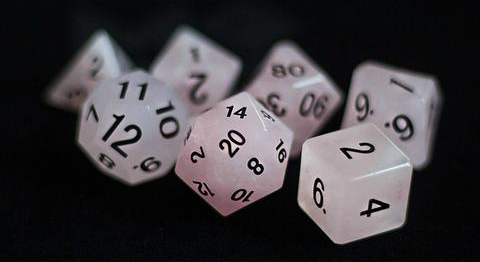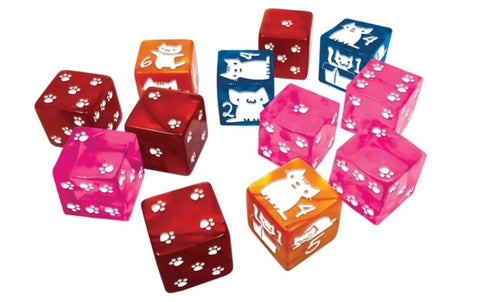Why use dice to resolve a moment of action in an RPG when you can just use your imagination? The answer—constraints allow for creativity. Picture a pile of loose Lego bricks with no rules; what will you build? Then imagine zombies are coming to storm your Lego town. Suddenly your mind is filled with visions of forts, barricades, and siege weapons. That’s the kind of power an RPG hopes to capture.
So how do dice help us channel our imagination? Randomness allows you to dream big while still confronting problems. It gives you a chance to react when things go wrong. So you came up with a crazy scheme to get past the dragon? Roll the dice to see if you survive. The crazier the scheme, the crazier things might go if the dice fail you. Or maybe with a bit of luck and a nat 20 you can do the near-impossible, and make it out with the Arkenstone alive!
Whatever RPG you’re playing at home or online, hopefully you’ll think about the role that randomness plays in your games. Pun intended. Until next time, may all your rolls be with advantage!
Wondering what dice to grab? Our polyhedral sets of 7 have everything you need for Dungeons & Dragons 5e, the world's most popular role-playing game. FATE dice (for playing FATE, of course) are cubes with +, -, and blank sides to indicate how your plans are going, rather than numbers. Our sets of D6s are great for miniature wargames, as well as RPGs like Scum and Villainy or Blades in the Dark, which simplify things and use one type of dice for almost every roll.
Glossary
RPG
role-playing game
D20
a 20-sided die; dodecahedron-shaped; rpg staple
D6
a 6-sided die; cube-shaped; timeless randomizing tool
Nat 20
natural 20; the 20 on a 20-sided die; as opposed to achieving a 20 via bonuses, as in a role-playing game
Rolls with advantage
Dungeons & Dragons 5th edition rule; to roll two dice and use the higher of the two
—Irenee W.
Edited By: Jasper R.


